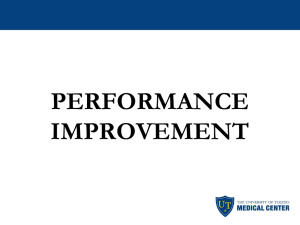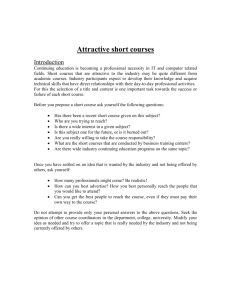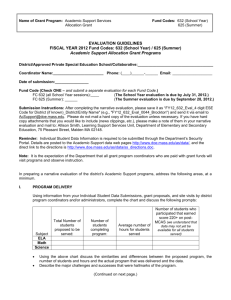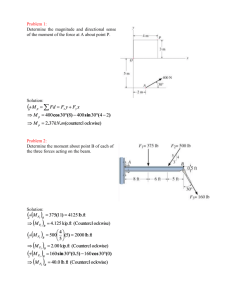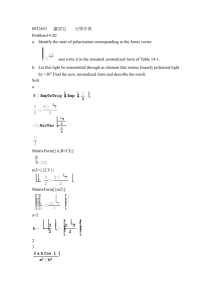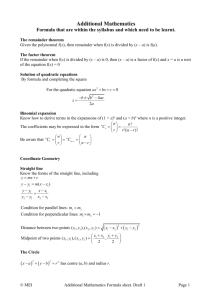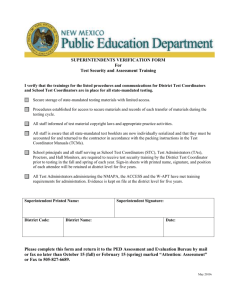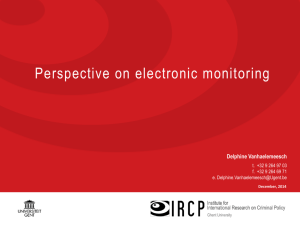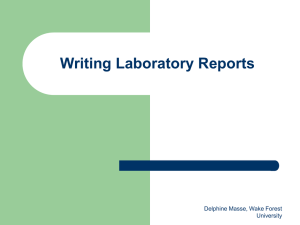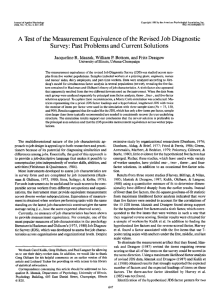Core Functions PQ Learning ECA draft 23-2
advertisement
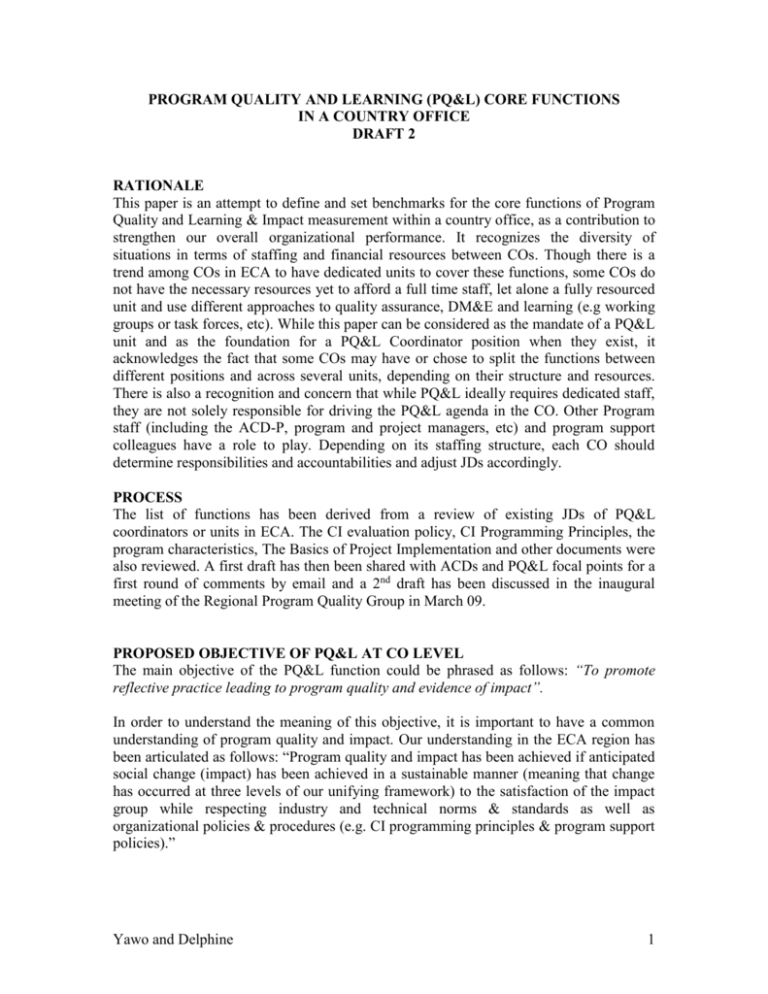
PROGRAM QUALITY AND LEARNING (PQ&L) CORE FUNCTIONS IN A COUNTRY OFFICE DRAFT 2 RATIONALE This paper is an attempt to define and set benchmarks for the core functions of Program Quality and Learning & Impact measurement within a country office, as a contribution to strengthen our overall organizational performance. It recognizes the diversity of situations in terms of staffing and financial resources between COs. Though there is a trend among COs in ECA to have dedicated units to cover these functions, some COs do not have the necessary resources yet to afford a full time staff, let alone a fully resourced unit and use different approaches to quality assurance, DM&E and learning (e.g working groups or task forces, etc). While this paper can be considered as the mandate of a PQ&L unit and as the foundation for a PQ&L Coordinator position when they exist, it acknowledges the fact that some COs may have or chose to split the functions between different positions and across several units, depending on their structure and resources. There is also a recognition and concern that while PQ&L ideally requires dedicated staff, they are not solely responsible for driving the PQ&L agenda in the CO. Other Program staff (including the ACD-P, program and project managers, etc) and program support colleagues have a role to play. Depending on its staffing structure, each CO should determine responsibilities and accountabilities and adjust JDs accordingly. PROCESS The list of functions has been derived from a review of existing JDs of PQ&L coordinators or units in ECA. The CI evaluation policy, CI Programming Principles, the program characteristics, The Basics of Project Implementation and other documents were also reviewed. A first draft has then been shared with ACDs and PQ&L focal points for a first round of comments by email and a 2nd draft has been discussed in the inaugural meeting of the Regional Program Quality Group in March 09. PROPOSED OBJECTIVE OF PQ&L AT CO LEVEL The main objective of the PQ&L function could be phrased as follows: “To promote reflective practice leading to program quality and evidence of impact”. In order to understand the meaning of this objective, it is important to have a common understanding of program quality and impact. Our understanding in the ECA region has been articulated as follows: “Program quality and impact has been achieved if anticipated social change (impact) has been achieved in a sustainable manner (meaning that change has occurred at three levels of our unifying framework) to the satisfaction of the impact group while respecting industry and technical norms & standards as well as organizational policies & procedures (e.g. CI programming principles & program support policies).” Yawo and Delphine 1 CORE FUNCTIONS 1. INSTITUTIONALIZING IMPACT MEASUREMENT - Facilitate development and use of a user-friendly LRSP (CO wide) M&E plan and system that allow the measurement of the country office’s contribution to poverty reduction and social equity through the integration of relevant national, international and organizational impact indicators (from Poverty Reduction Strategy Plans, and Millennium Development Goals, UBORA, etc) in the CO M&E plan; - Facilitate development and use of user-friendly & participatory project/program level monitoring, reporting and evaluation tools and systems (log frames, M&E plans) that meet both donor and internal needs and requirements and allow to track and document progress, outputs, outcomes (both desired and unintended) and impact, feeding into the CO wide M&E plan; - Ensure all (LRSP/CO level, program level, project level) baselines, mid term reviews and evaluations are carried out according to industry standards and existing CI standards and guidelines; - Lead role, with ACD-P, to develop a program approach in CO and where relevant to ensure the continuum between emergencies and the longer term development work; - Support program teams to carry out in-depth UCP/V analysis as well as other analysis (e.g. causal / problem analysis) required for ongoing program development & impact - Lead role, with sector/program coordinators, in projects/program design and development. 2. PROMOTE REFLECTIVE PRACTICE, LEARNING AND KNOWLEDGE MANAGEMENT - Promote a culture of creative reflection and accountability by ensuring that Organizational Learning is fully integrated in our DM&E system and in our dayto-day practice; - Promote downwards/forward accountability and Social Learning by ensuring projects/program participants and strategic partners take active part in all the phases of the projects/program cycle and particularly in the design, monitoring and evaluation processes and by enabling them to access and use the learning generated by the projects/program for their development; - Builds the organization’s institutional memory and support project/program teams to continuously test and adapt our projects and program strategies or Theories of Change based on the learning from the field through: o the development of systems and opportunities that enable the analysis and use of collected data and generated knowledge by program teams and Yawo and Delphine 2 others in a way that feeds into program implementation, development and policy advocacy; o the systematic documentation and archiving of all relevant generated lessons and knowledge by CARE and others, at a central and accessible place; 3. QUALITY ASSURANCE - Ongoing monitoring of adherence to CI Projects Standards Measurement Instrument (PSMI), programming principles and program characteristics - Support CO, sector coordinators or technical leads to access information on and apply relevant minimum sector / technical standards (e.g. SPHERE for emergencies, etc) and to develop them when required; - Supporting project/program teams to develop & implement projects/program quality improvement plans when required; - Supports and coordinates CO access to relevant technical assistance 4. TRAINING AND CAPACITY BUILDING - Ensuring all projects/program staff and partners are conversant with basic concepts and requirements of DM&E, Learning and program quality through ongoing identification of gaps, training and capacity building of staff and partners in these areas. - Supporting sector/program coordinators and HR to develop and deliver induction / orientation and training programs to CARE and partners’ staff on our approaches, models and program strategies; 5. NETWORK AND ALLIANCE BUILDING ON PQ ISSUES - Pro-actively engage with other organizations working in similar domains in order to learn from others and exchange experiences, lessons and good practices with them. - Keep informed of all developments in the CARE USA Program Quality and Impact (PQI) unit and all other initiatives related to PQ&L and Impact measurement within CARE International and ensure important information & policies are communicated, applied and understood throughout the CO. - Participate/contribute to Regional Program Quality Group meetings and action plan and maintain close links with other PQ&L units and colleagues in the region; Yawo and Delphine 3 - Pro-actively engage with program support units to identify issues and good practices that either hinder or contribute to program quality and strong organizational performance Yawo and Delphine 4
